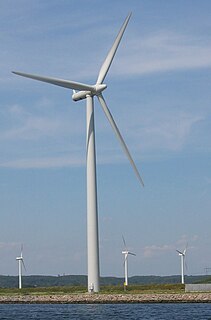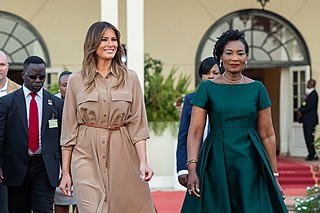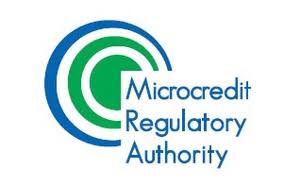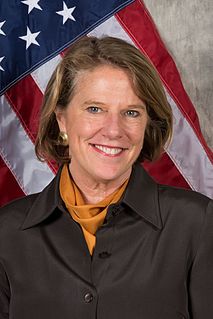
The economy of Benin remains underdeveloped and dependent on subsistence agriculture and cotton. Cotton accounts for 40% of Benin's GDP and roughly 80% of official export receipts. There is also production of textiles, palm products, and cocoa beans. Maize (corn), beans, rice, peanuts, cashews, pineapples, cassava, yams, and other various tubers are grown for local subsistence. Benin began producing a modest quantity of offshore oil in October 1982. Production ceased in recent years but exploration of new sites is ongoing.

Microfinance is a category of financial services targeting individuals and small businesses who lack access to conventional banking and related services. Microfinance includes microcredit, the provision of small loans to poor clients; savings and checking accounts; microinsurance; and payment systems, among other services. Microfinance services are designed to reach excluded customers, usually poorer population segments, possibly socially marginalized, or geographically more isolated, and to help them become self-sufficient. ID Ghana is an example of a microfinance institution.

The United Nations Global Compact is a non-binding United Nations pact to encourage businesses and firms worldwide to adopt sustainable and socially responsible policies, and to report on their implementation. The UN Global Compact is a principle-based framework for businesses, stating ten principles in the areas of human rights, labor, the environment and anti-corruption. Under the Global Compact, companies are brought together with UN agencies, labor groups and civil society. Cities can join the Global Compact through the Cities Programme.
A green economy is an economy that aims at reducing environmental risks and ecological scarcities, and that aims for sustainable development without degrading the environment. It is closely related with ecological economics, but has a more politically applied focus. The 2011 UNEP Green Economy Report argues "that to be green, an economy must not only be efficient, but also fair. Fairness implies recognizing global and country level equity dimensions, particularly in assuring a Just Transition to an economy that is low-carbon, resource efficient, and socially inclusive."

BRAC is an international development organisation based in Bangladesh. In order to receive foreign donations, BRAC was subsequently registered under the NGO Affairs Bureau of the Government of Bangladesh. BRAC is the largest non-governmental development organisation in the world, in terms of number of employees as of September 2016. Established by Sir Fazle Hasan Abed in 1972 after the independence of Bangladesh, BRAC is present in all 64 districts of Bangladesh as well as 11 other countries in Asia, Africa, and the Americas.

A carbon offset is a reduction or removal of emissions of carbon dioxide or other greenhouse gases made in order to compensate for emissions made elsewhere. Offsets are measured in tonnes of carbon dioxide-equivalent (CO2e). One ton of carbon offset represents the reduction or removal of one ton of carbon dioxide or its equivalent in other greenhouse gases. One of the hidden dangers of climate change policy is unequal prices of carbon in the economy, which can cause economic collateral damage if production flows to regions or industries that have a lower price of carbon—unless carbon can be purchased from that area, which offsets effectively permit, equalizing the price.

The United States established diplomatic relations with Malawi in 1964 after Malawi gained independence from the United Kingdom. Malawi's transition from a one-party state to a multi-party democracy significantly strengthened the already cordial U.S. relationship with Malawi. Significant numbers of Malawians study in the United States. The United States has an active Peace Corps program, Centers for Disease Control and Prevention, Department of Health and Human Servicess, and an Agency for International Development (USAID) mission in Malawi. Both countries have a common history and English language, as they were part of the British Empire.

The renewable-energy industry is the part of the energy industry focusing on new and appropriate renewable energy technologies. Investors worldwide have paid greater attention to this emerging industry in recent years. In many cases, this has translated into rapid renewable energy commercialization and considerable industry expansion. The wind power, solar power and hydroelectric power industries provide good examples of this.
Pottinger is a global corporate advisory firm, which provides:

Alhaji Dr. Kandeh Kolleh Yumkella is a Sierra Leonean agricultural economist, politician, and the former United Nations Under-Secretary-General and the Special Representative of the Secretary-General for Sustainable Energy for All. He was also the chief executive officer of the Sustainable Energy for All Initiative. Yumkella is a former Chairman of UN-Energy and a two-term former Director-General of the United Nations Industrial Development Organization (UNIDO).

Microcredit Regulatory Authority (MRA) is the central body to monitor and supervise microfinance operations of non-governmental organizations of the Republic of Bangladesh. It was created by the Government of People's Republic of Bangladesh under the Microcredit Regulatory Authority Act. License from the Authority is mandatory to operate microfinance operation in Bangladesh as an NGO.

Innovations for Poverty Action (IPA) is an American non-profit research and policy organization founded in 2002 by economist Dean Karlan. Since its foundation, IPA has worked with over 400 leading academics to conduct over 600 evaluations in 51 countries. The organization also manages the Progress out of Poverty Index.
Impact investing refers to investments "made into companies, organizations, and funds with the intention to generate a measurable, beneficial social or environmental impact alongside a financial return". At its core, impact investing is about an alignment of an investor's beliefs and values with the allocation of capital to address social and/or environmental issues.

The Millennium Foundation for Innovative Finance for Health is an independent, non-profit Swiss organization, established in November 2008 in order to create new ways to finance health systems in low- and middle-income countries. Based in Geneva, Switzerland, the Millennium Foundation aims to ensure that international commitments on improving health care are met through the development of innovative financing projects. Its first such project – called MassiveGood – was launched on 4 March, and will give travelers the possibility to add a $2, £2 or €2 micro-contribution to the purchase of a travel reservation, with all proceeds going to the fight against HIV/AIDS, malaria and tuberculosis.
Sustainability standards and certifications are voluntary guidelines used by producers, manufacturers, traders, retailers, and service providers to demonstrate their commitment to good environmental, social, ethical, and food safety practices. There are over 400 such standards across the world.
Multistakeholder governance is a practice of governance that employs bringing multiple stakeholders together to participate in dialogue, decision making, and implementation of responses to jointly perceived problems. The principle behind such a structure is that if enough input is provided by multiple types of actors involved in a question, the eventual consensual decision gains more legitimacy, and can be more effectively implemented than a traditional state-based response. While the evolution of multistakeholder governance is occurring principally at the international level, public-private partnerships (PPPs) are domestic analogues.
Herman Mulder is an institutional adviser, speaker, lecturer and author on sustainable finance issues. He is a pioneer of the Equator Principles, used by banks to voluntarily assess and manage social and environmental risk.

Elizabeth L. Littlefield, is a Senior Counselor and Head of the Sustainability Practice at Albright Stonebridge Group and a Senior Advisor at Pollination. She chairs the Board of M-KOPA solar and serves on the board of the World Wildlife Fund (US).

Sustainable Development Goals and Lebanon explains major contributions launched in Lebanon towards the advancement of the Sustainable Development Goals SDGs and the 2030 agenda. Multi-stakeholder forums were held by different UN agencies including the UN Global Compact Network in Lebanon during the late 2010s for the advancement of Global Goals and their Impact on Businesses in Lebanon. The latest two were held on October 18, 2018 and October 2019 under the title of connecting the global goals to Local Businesses.

Edwin Macharia is a Kenyan businessman and corporate executive. He is the global managing partner, at Dalberg Advisors, the leading impact-first advisory firm with offices in North America, Europe, Africa, Asia and the Middle East. He was elected to that role in November 2019.














